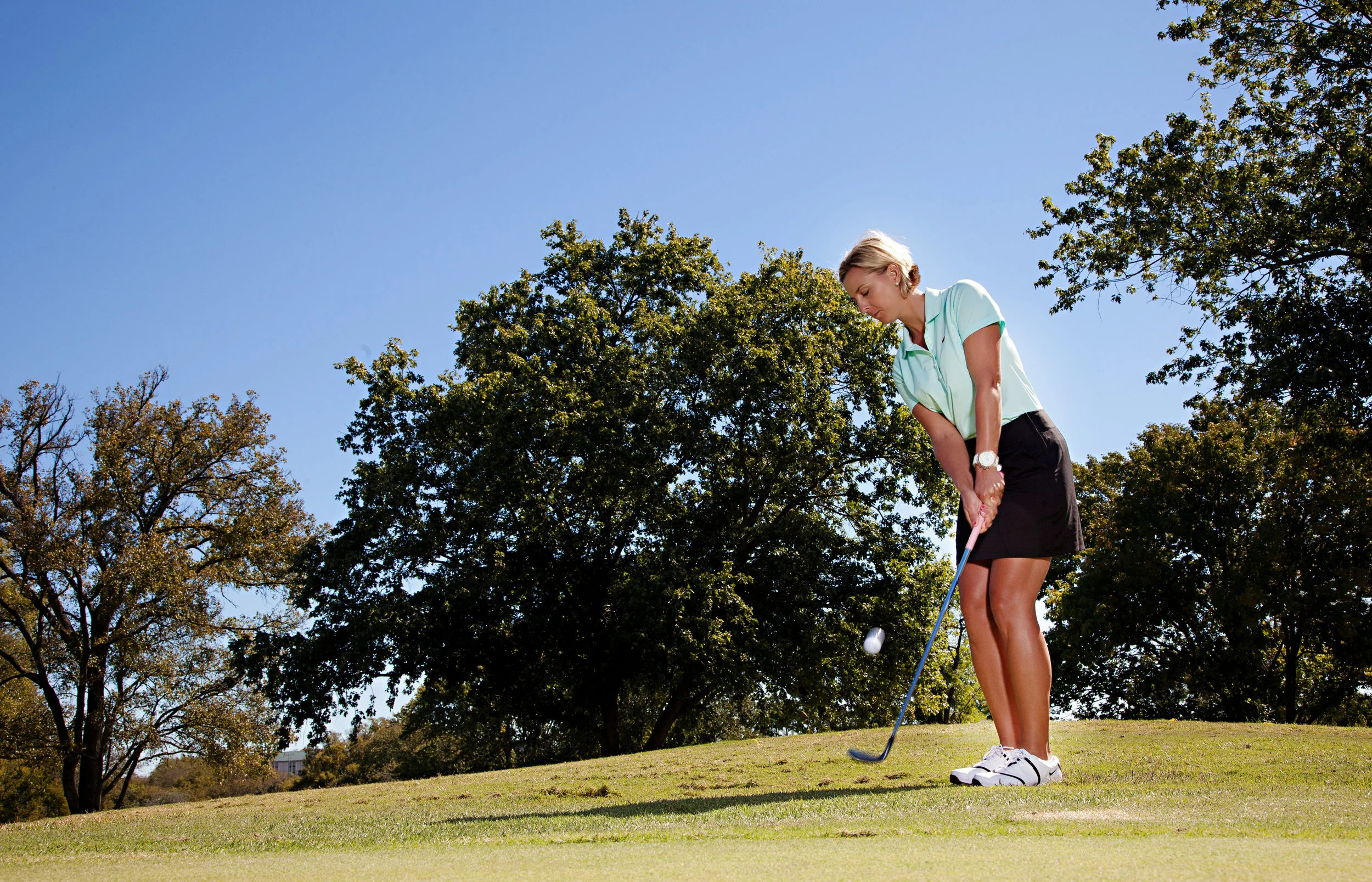Identify and Manage the Interference
/A couple of weeks ago I had the opportunity to guest teach at Linville Ridge C.C. in North Carolina. I want to thank the Lutgerts for their generous hospitality and to all the members who participated in clinics and coaching sessions. During my visit I held an indoor session on how to 'Master the Mental Skills'. In honor of the participants and my new followers in North Carolina, today's article covers one of the topics we discussed in the class, 'identifying your interference'.
Performance = Skills - Interference +/- Luck
This formula is the most simple way to describe how our performance is affected and what leads to low performance and lack of improvement. To perform at your highest level, you must be able to identify and manage your skill set AND your level of interference. Let's start by breaking down the formula.
Skills include all the different areas of your game you learn, practice and perform on the golf course. Full swing, pitching, bunker shots, putting, uneven lies, chipping, etc. You also have mental skills which include focus of energy, intensity management, attention control and thought control. Your current skill level can and will affect your performance if you don't learn clear fundamental concepts in your golf game. This is where a really great coach comes into play.
Interference is defined as any internal or external factors that "interfere" with your ability to transfer your skills from your brain to your muscles.
Luck. It's part of golf whether you want to accept it or not. You're going to get bad breaks and good bounces. You will shoot low and high scores. You will hit horrible shots and amazing shots. Learn to accept the uncertainty and inconsistency in golf and you will be a much happier golfer. I promise!
So why do skills NOT transfer to the golf course?
Why are you a 5 handicap on the driving range and a 15 on the golf course? Why do your skills change under pressure? Why do you play great for a few holes and then lose it completely? Simple. Interference. So to improve your level of performance you have two tasks; increase your skill level and eliminate the interference.
So let's first identify your interference. Take out a piece of paper and write down everything that mentally interferes with your current skill level. Your list may include things like slow play, a specific hole, playing partners, your laundry list of swing thoughts, negative self talk, hazards, nerves, letting others down, lack of focus. You know yourself best and hopefully it's easy to identify what mentally interferes with your skill set.
Now here's the thing about interference. Many of the items on your list may not be able to go away. Picture this scenario. You're standing on hole #4. It's a small green surrounded by difficult bunkers and out of bounds left. You're hitting a long club over a deep valley of weeds and heavy grass. And to make the situation worse your playing in a match with your buddies. One bad swing and your brand new Titleist is bye bye and your partner is now playing alone. SO MUCH INTERFERENCE!!!! You can't escape the pressure of the situation. But you can control your mind and body on this ONE swing.
Managing the Interference
So how can we manage the interference? First, you must develop one or two swing feelings (triggers) you can rely on in your swing. For me I have two swing feelings. "Get back and wait for the target." This sentence probably doesn't mean anything to you, but it works for me. That little sentence reminds me what I want to feel during the swing and to stay engaged to the target. Before addressing the ball you must commit 100% to the shot, club selection and swing feelings. Remember you should only have 1 or 2 swing feelings max. This will help eliminate any extra internal interference.
Next, the majority of your attention should be on the target and the ball flight you want to execute. Your attention should be more external then internal and more narrow then broad. Meaning you want to put most of your awareness on a specific target and allow your body to execute the swing. Having narrow focus means ignoring the hazards, your playing partners, the what ifs and all the internal chatter. When you step up to the ball it's time to feel the swing and execute the shot. Of course this is not a guarantee you will hit the shot exactly how you want, but at least you gave it full commitment without letting the interference affect your swing. This should be your goal with every swing.
True Statement (according to me!): You Have TWO Golf Swings
Yes it's unfortunate but true. Every golfer has two swings that show up on the golf course. The perfect swing and the interference swing. The perfect swing is the one that works when everything is going well. It's the swing that you say "why can't I do that every time?" The swing you probably have on the range or on days when you can't miss. Your interference swing is the swing we tend to make when external and internal factors interfere with our ability to transfer skills from the brain to the muscles. So is there a way to eliminate the interference swing?
As a golf instructor, students will usually come see me when they want to "change" their interference swing. Meaning they will hit a few bad shots on the course and immediately try and "fix" what went wrong in the swing. After an entire round of golf you may end up with 10 new swing thoughts! Confusion kicks in and your performance crashes. At the risk of putting myself out of business here's a better plan. Instead of thinking something is wrong with your swing, learn to distinguish the different between your perfect swing and the interference swing. Identify the interference, improve your physical and mental skills and you will see your interference swing show up less and less on the golf course.
Contact me with questions or for help on finding the difference between your perfect swing and the interference swing.









